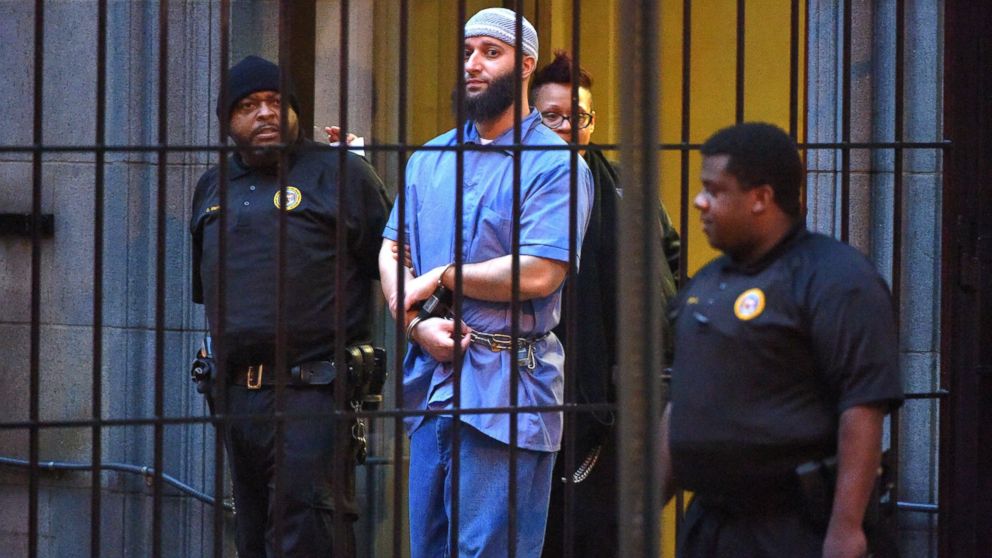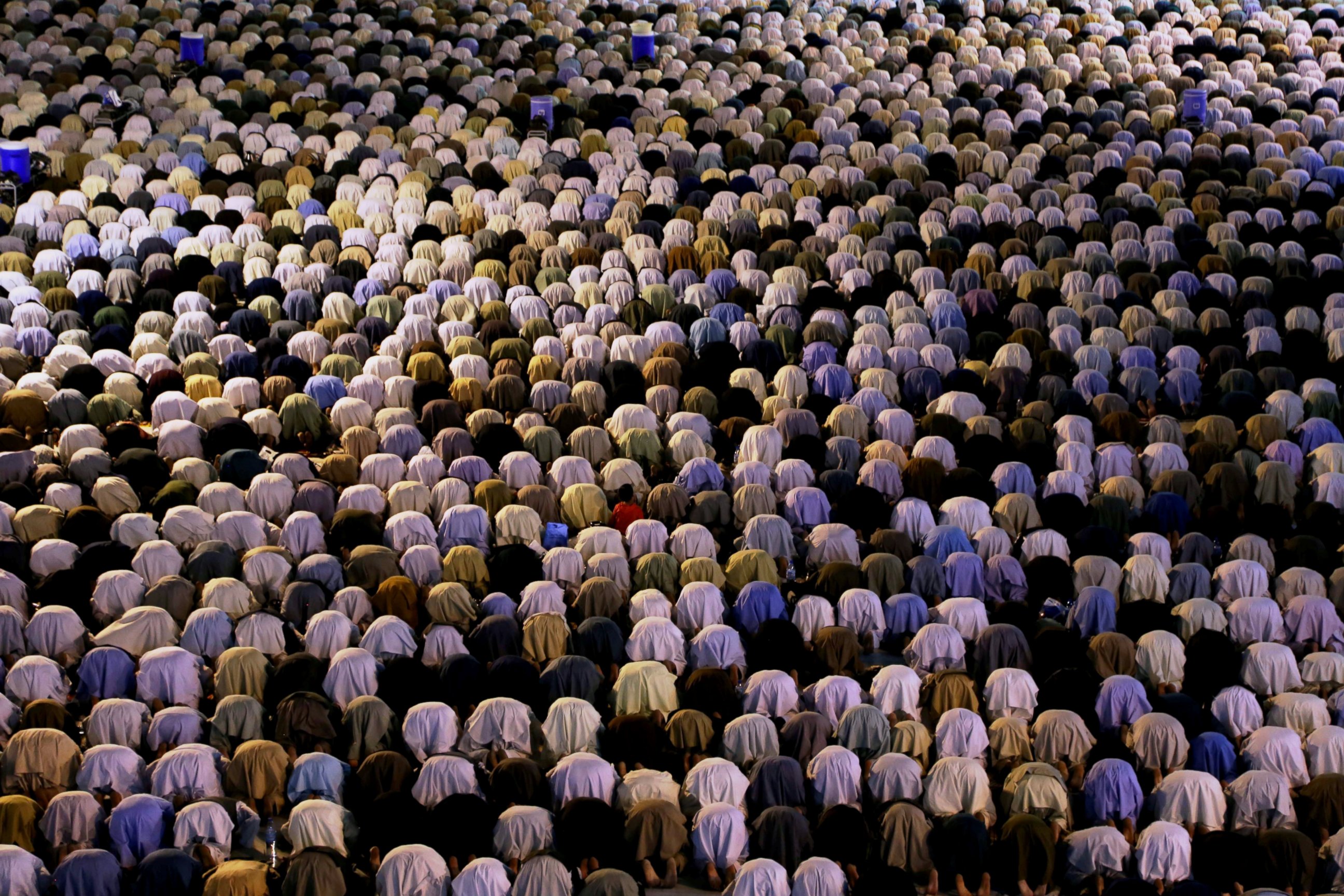Serial's Adnan Syed Fasting for Ramadan Behind Bars as He Awaits Retrial Decision
Syed, a Muslim American born to Pakistani immigrants, is serving a life sentence

— -- Most of the globe's 1.6 billion Muslims are in the midst of observing Ramadan, an Islamic holy month meant for contemplation, self-discipline, and good deeds. It’s also a month of intense prayer and abstinence some Muslims are observing from behind bars -- including at the North Branch Correctional Institution in Cumberland, Maryland, a maximum security prison home to one of the world’s most famous felons: Adnan Syed of podcast “Serial” fame.
Over the course of 30 days, Muslims like Syed have adhered to a strict fast observed from sunrise to sunset -– not eating or drinking anything –- as a reminder of the suffering of those less fortunate. This holy time for Muslims is oft considered a spiritual journey to cleanse their souls in remembrance of God.
“For inmates, it’s not only a physical thing where they watch what they eat, it’s also very spiritual and also very mental,” said Saad Chaudry, a longtime friend of Syed’s in an interview with ABC News. Chaudry, who is a Baltimore businessman, has kept in touch with Syed throughout his incarceration, acknowledging a phone conversation the two had just a couple days ago.
“I think it’s one of our most welcomed months because of camaraderie,” Chaudry said, explaining that Syed has the company of a few hundred Muslims that are incarcerated with him in the Cumberland prison. “Ramadan is a time when you drop grudges, you’re not smoking or doing drugs in prison, you’re not even supposed to curse.”
Syed, a Muslim American born to Pakistani immigrants, is serving a life sentence for the 1999 murder of Woodlawn High School student Hae Min Lee, his former high school girlfriend. Lee’s murder and Syed’s subsequent arrest, trial and conviction were profiled in the hit podcast “Serial”, which launched an investigation into Syed’s 2000 trial, raising some doubts about the quality of his then-defense team and several pieces of evidence that were used against him.
He is currently waiting for a retired Baltimore judge to decide whether or not he will get a new trial after new evidence and testimony from a key witness were introduced at a second post-conviction relief hearing earlier this year.
For Syed, life behind bars has become a norm. He was just 17 when he got his first taste of life behind bars. Now at 35-years-old, Syed has spent more than half his life in prison.
“His spirits are up and he’s just trying to make the best of things,” Chaudry said.
He's had the support of the Muslim inmate population since he was first sent to prison at 17, often teaching inmates who have converted to Islam behind bars the ways of the religion, Chaudry said.
“Something set him apart in that he could read the Quran pretty fluently,” Chaudry said. “A lot of people converted to Islam while incarcerated, so they were really thankful that someone could read the Quran and teach them about prayer.”
Because of this, Syed was valued for his knowledge of Islam, Chaudry said. He was "taken under their wing and they looked out for him,” and was “well protected” by other Muslim inmates, so that “no one messed with him.”

Syed is observing Ramadan while incarcerated thanks to an accommodating prison system where he is currently serving his sentence. The Cumberland prison has adjusted the eating schedules for Syed and other Muslim inmates so that they are served breakfast around 4 a.m. just before sunrise, and a dinner meal at 9 p.m. after the sun sets, Chaudry said. In the evening hours, the group of inmates can also get together for a reading from the Quran, Islam’s holy book. They’ll often pray together during this time, as well, in a prison gym that is reserved for them to practice their faith, Chaudry said.
The North Branch Correctional Institution officials declined to comment for this story, saying all of Syed's personal reports are “considered a part of his base file, which we cannot reveal under Maryland law" but that there are policies in place on how prison officials deal with Ramadan.
Syed’s attorney Justin Brown applauds the prison’s decision to allow Syed the right to practice Islam, telling ABC News, "It is my understanding that the prison has allowed my client -- and other Muslims -- to observe Ramadan in a meaningful manner. While this is what we expect from all of our prisons, we are nonetheless grateful that this prison takes this religious right so seriously."
But not all prisons in the U.S. are as accommodating to Muslim inmates, said David Fathi, director of the American Civil Liberties Union National Prison Project.
“Prisons are all about routine and schedules, and established ways of doing things. Ramadan is a change to the routine, and it can lead to friction between prisoners and prison officials,” he said.
But Fathi does acknowledge that in the U.S., it’s “universally understood” that fasting during the month of Ramadan is a core tenant of the religion, and that most prisons are “pretty good” at adjusting meal times during Ramadan.
To back these religious accommodations, the U.S. Congress passed a law in 2000 that prohibits prisons from placing a burden on prisoners to worship the religion they most connect with.
“The law is protective of sincerely held religious beliefs and religious obligations,” Fathi said, explaining that religious prisoners have many protections for their right to worship and their duty to carry out religious obligations due to the federal law.
Chaudry said despite his concerns for Syed's physical health and general well-being, the month of Ramadan has helped Syed with his physical, mental, and spiritual health during an anxious time in his life while he waits for the judge to decide his fate.
"He's been waiting for so long," Chaudry said. "Every decision takes so long. Every process takes so long. But, no matter what happens, there will be a continued fight for justice."




